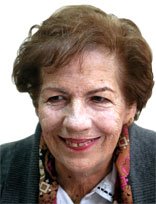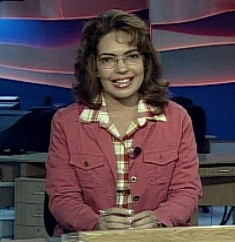Dr. Ortiz, When did you leave Holguin?
I came to Havana city in 1953 to study at the University of Havana. It was an important time in our history, because the attack on the Moncada Garrison had already occurred. My family and I still lived in Holguin, when the historic action took place in Santiago de Cuba, another province in eastern Cuba; and certainly, it did make much of an impact in the eastern region of Cuba first rather than the rest of the country. So, I began to study at the University in such political environment.
What did you study?
Arts, and Philosophy, quite beautiful, I would study them again if I were born again.
What are your memories from the University in the mid 1950´s?
There are living memories inside me, Josefa, since it was a time for a huge cultural discovery, as well as, a conviction in the need for a change in Cuba. Actually, the university students does have that revolutionary conviction since school and from home; you must remember that the University was strongly involved in the struggle against Batista´s dictatorship; so the students could no be indifferent to the existing situation in our country.
And becoming a teacher was your vocation since too young?
Since I was a little girl, I used to play being a teacher rather than being a housewife.
By the way, did you ever dreamed of teaching at the University?
Yes I did, it was difficult at those times.
And did you dreamt at teaching at the University of Havana?
Certainly, but it was a dream almost impossible to become true at that time, because there were very few opportunities to take competitive examinations for teaching. I remember that there was only one at my student time, when Roberto Fernandez Retamar , an outstanding poet, essayist, and literary critic, became Linguistics and Philology professor.
Did you regret the the closing of the University?
A great student demonstration took place on November 27th, 1956, in which there were shots, stone throwings, fire engine trucks; those typical things during confrontations between students and the police during Batista’s dictatorship. Since then, the University was closed permanently, because two or three days later occurred the uprising in Santiago de Cuba province to support the Bay of pig Invasion –an unsuccessful attempt by Cuban exiles to invade southern Cuba with support from US government –which took place two days later. The University was reopened after the triumph of the Revolution –January the first, 1959- so, the University students could continue studying.
Do you mean that you could only finish your career after the triumph of the Revolution?
Yes, I do. When I finished my career I had a job uphere in Havana. An uncle of mine, who was a professor at the Candler Collage, got me a job there. I had had to go to Holguin province, but I came to Havana in September, 1957, and started to work at the Candler Collage as a Spanish and History teacher at high school and also at a Commerce school my uncle had.
If you had not become a teacher, what else would you have wanted to be?
That’s a hard question to answer because I think I would have chosen the same degree.
Do you have any special memory of some schoolmate at the University?
I have many memories of my schoolmates. Some of them have had a decent and brilliant life, dedicated to the Cuban Revolution; and many others have had an outstanding intellectual life.
Dr. Ortiz, when did you start working at the University as a professor?
It was in March, 1963, after the University Reform. This reform was enacted on January 10, 1962, as a tribute to Julio Antonio Mella, and that was, at least in Philosophy and Letters, one of the fundamental causes many teachers left, regardless of whether reforms were taking place on curricula, expansion of careers, not only in the old faculty of Arts and Philosophy, which later became School of Arts at the University and is now Arts and Letters, but in the entire University. Professors were scarce and I was called in as a professor of Spanish Grammar and Writing in the old School of Arts at the University. —
Now I would like to talk about a very important subject to me: “Escriba y lea” television show. I really discovered you at “Escriba y Lea”, since I am fond of that television show. I have always said that if I had to choose the best television program, I would chose “Escriba y Lea”(Write and Read), because of the cultural knowledge it provides. Even though the panelists have no previous information on the questions asked to them, they are able to consult among them on the subject, before they give the accurate answer. Who had the idea of broadcasting this program, which despite of time, it still keeps its freshness since the very first day?
Shortly after starting to work at the university, a University Commission organized a course for radio and television announcers. They were very good courses.
Some participants at the announcing course included: Jose Antonio Cepero Brito, Enrique Goizueta, Hector Fraga, Ramón Hernandez, and Franco Carbon, a childhood friend, whom I met at church and at school inthe Holguin province. I had a nice relation with the group. They said that I should work for the Cuban Television, and it made me laugh they thought of me appearing on television. Finally, the idea came up some years later by a group of colleagues encouraged by Dr. Humberto Galis-Menendez, who had already worked at a radio show called: “La bolsa del saber.” Galis-Menendez was a veterinarian and at a Havana University professor at the Veterinary Medicine Faculty. He participated as a judge at international cattle shows. Dr. Humberto was a cultured person on History, literature, art, and music; in my opinion, he was a very peculiar man. I think, Humberto was the man behind the initiative to create “Escriba y Lea” and was supported by some radio employees such as Hector Nuñez Rodriguez and Leslie Rodriguez.
To create the program, they asked Cepero Brito, a Cuban announcer, to be the presenter. One of the “Escriba y Lea” panelists would be Galis-Menendez, its creator. The second panelist was a man- I do not remember his name. They were looking for a woman to be the third panelist. Cepero Brtito said I was the right person, and I told them I would not do that, not for all in the world, aboveall in that kind of program, in which it is not difficult to make a fool of oneself. It is still possible that some years later, a question cannot be answered by me and next day, my University students tell me in the classroom: Professor, you were not able to answer any question at the program!
But fortunately for the Cuban people, you accepted to participate at that program.
They insisted so much that one day I said to myself: Why don’t you try it? Don’t give up before trying?. Galis-Menendez had developed a methodology of how the panelists must ask questions from general to particular in order to figure it out the answer. Sometimes happens that we can not give the right answer because we forgot methodology. There is an order to follow to ask the questions.
Dr. Ortiz, Has this television program increased your horizons as a professor?
Yes, it has, and also has broadened my cultural horizons and those of my colleagues who have also been panelists over years. You are always learning things, even from errors. This is not a class for training specialists, but an entertainment program that contributes to the viewers’ cultural development. The viewers become eager to know who is going to answer the question; and of course, I love to be the one giving the final answer.
Aside from your vast knowledge on different subjects, how important is for the panelists having a good memory?
Memory has a crucial role. It is not just having a system based mainly on learning by heart. I think that memory needs to be exercised, like a sportsman exercises his muscles and a body to reach the finish line or win a competition, or like an artist gets ready for a concert. For example: How a lyric singer can sing opera if he or she does not memorize music?
A translation by: Silke Paez Carr



